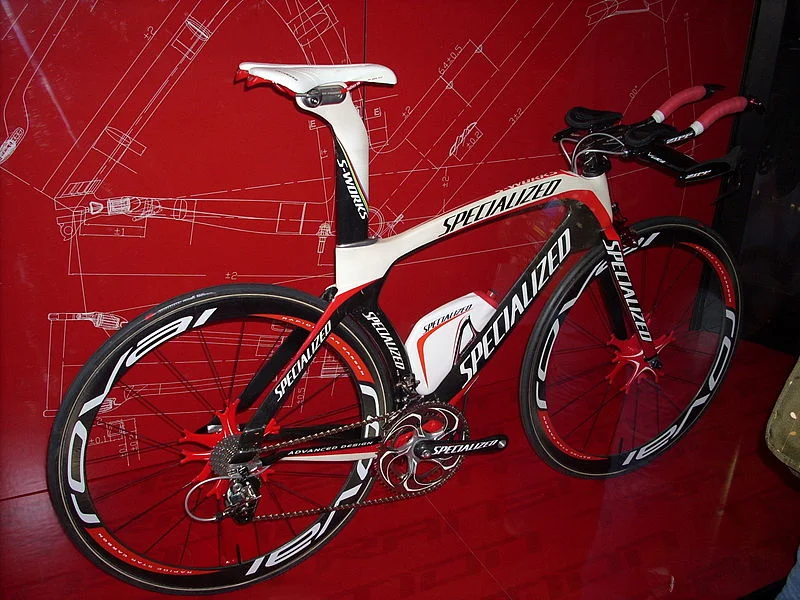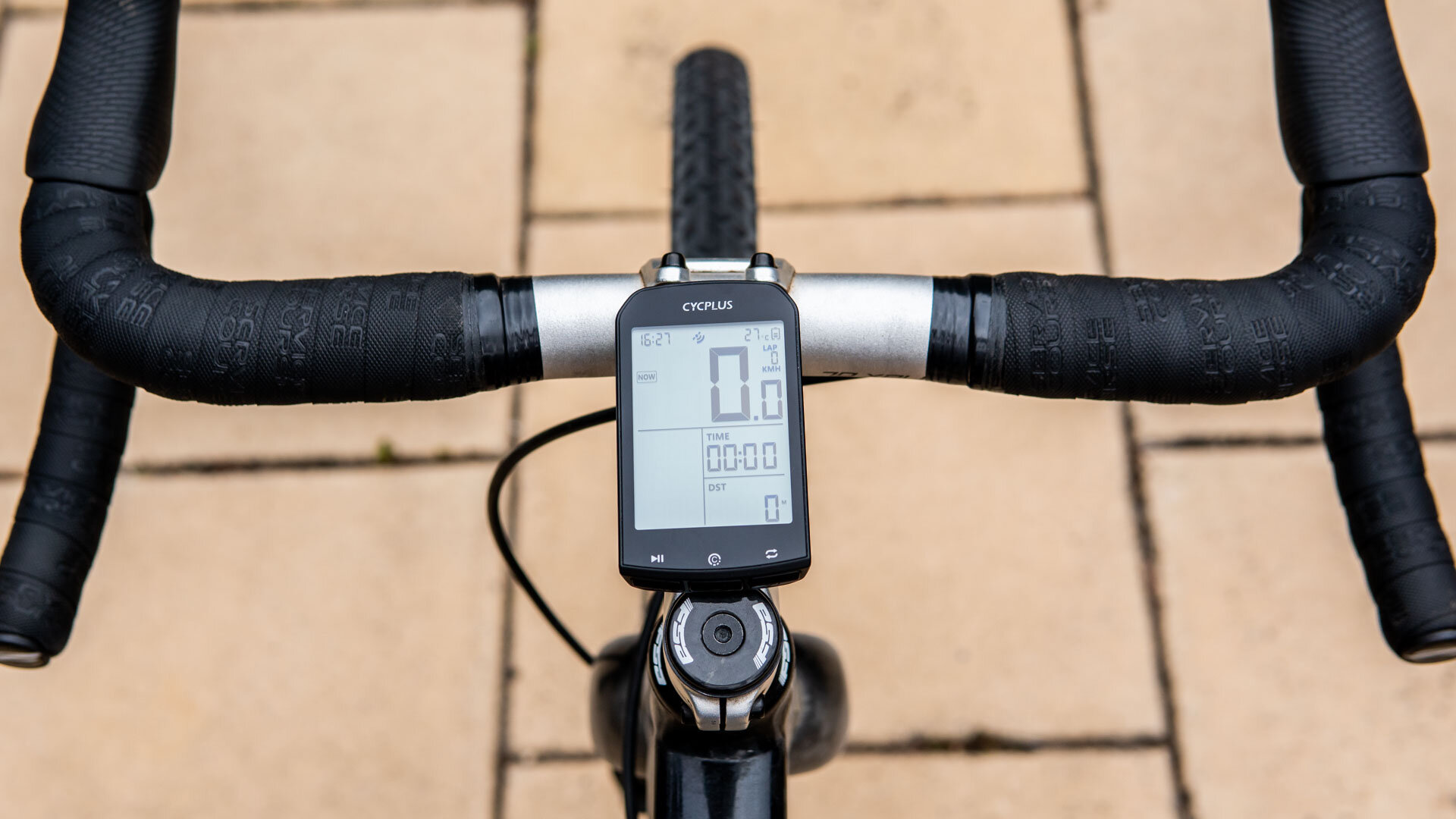How to brag about your... Specialized

Specialized are one of the most dominant companies in the cycling marketplace. La Velocita’s Tom McQuillan uncovers some lesser-known facts about the ‘big S’.
Cycling is an expensive sport, and we all know there’s no point paying for that high-end bike or those whiz-bang carbon fibre wheels if you’re perceived as having ‘all the gear but no idea.’ With that in mind, it’s often a good idea to brush up on some of the more noteworthy facts about the bike you’ve just dropped a small fortune on, lest a casual question from an inquisitive riding partner expose you as someone with more money than sense.
To that end, we’ve started a new series based around the brag-worthy facts you might not know about famous cycling brands. Our first article was all about Pinarello, and this time we’ve parachuted down from the La Velocita zeppelin with a list of do’s and don’ts for bragging about your Specialized.
DO: Mention the brand's history. After being founded in 1976 by American Mike Sinyard, the Specialized name first rose to prominence when it released the first mass-produced mountain bike, the Stumpjumper, in 1981. Prior to 1981 all decent mountain bikes had to be custom-made, so consumers jumped at the chance to buy a factory-built mountain bike, which Specialized advertised as 'the bike for all reasons.' The initial run of 500 sold out almost immediately, and the Stumpjumper would become the building block for the company's future successes. An original 'Stumpy' was even preserved by the Smithsonian museum in Washington DC as an item of cultural or historical significance.
DON'T: Mention that the first Stumpjumper weighed a hefty 14kg and had the gears from a road bike, the cranks and brakes from a touring bike, and no suspension.
DO: Talk about Specialized’s pedigree in pro racing. On the road, Specialized currently sponsor 3 WorldTour teams (Astana, Etixx-Quickstep, and Tinkoff), who between them have won 8 of the 19 Grand Tours since the start of 2010 (2 Tours de France, and 3 editions each of the Giro d'Italia and Vuelta a Espana through Andy Schleck, Alberto Contador, Vincenzo Nibali and Fabio Aru), as well as Olympic gold under Alexandre Vinokourov in 2012.
Specialized's riders have been very successful at the world road race championship as well, taking out eight consecutive men's time trial titles from 2006-2013 thanks to Fabian Cancellara, Bert Grabsch and Tony Martin, as well as the road race world title for men in 2011, 2014 and 2015 via Mark Cavendish, Michal Kwiatkowski and Peter Sagan respectively. In women's road racing, Specialized were one of the first companies to offer women's specific designs for their road bikes, and the Boels-Dolmans team this season (which has seen them win 8 of the first 10 events of the inaugural Women's WorldTour, as well as set a new mark for the hour record) should be partly attributed to their Specialized equipment.
In mountain biking, a Specialized was ridden to Olympic gold at the London 2012 games by Czech rider Jaroslav Kulhavy, while the company's Shiv TT bike played a crucial part in the Ironman World Championship wins of Chris McCormack and Craig Alexander in 2007, 2010 and 2011.
DON’T: Make the mistake of thinking that bikes branded ‘S-Works’ and ‘Specialized’ are made by different companies - they’re just two differently branded kinds of bikes both made by Specialized.
The ‘S-Works’ branding is applied to all of Specialized’s top-level bikes, so any bike carrying S-Works decals will have been designed for racing and have a price tag to match.
A quick check on Specialized’s Australian website shows that the cheapest S-Works branded road bike (the women-specific Amira) costs a cool $8999, while an aerodynamic Venge ViAS equipped with Shimano’s top of the line Dura-Ace Di2 groupset will set you back $11999. If you want to spend top dollar on a mountain bike to match your S-Works roadie, you can add a dual suspension S-Works Epic to your stable for a paltry $15999.
DO: Mention their wind tunnel. While all bike companies are seeking aerodynamic gains for their products, Specialized actually built their own wind tunnel (or ‘Win Tunnel’, as they call it) at their headquarters in Morgan Hill, California, instead of doing what most other companies do and borrowing one from a university or Formula 1 team. Although they've used it to improve their products (including the development of the new Venge ViaS and the Evade aerodynamic helmet), they've also done a few tests in the public interest. One of the best was when they attempted to quantify the performance benefits of shaving your legs (around 70 seconds over a 40km effort, in case you were wondering). They've also done a few other tests along the same lines on hairy vs. shaved arms, as well as the benefits of wearing aerodynamic clothing and aero helmets.
DON'T: Mention the lawsuits. Since the company's inception, Specialized have been very aggressive in protecting their trademarks, resulting in a number of lawsuits. This has attracted plenty of criticism from those who see the company as overstepping their bounds, especially since Specialized tend to give their products names quite closely associated with their chosen disciplines. An example of this is one of their cross country mountain bikes, which is called the 'Epic'- a term which is used in mountain biking about as often as a legal document uses the word 'hereby'.
The most notable example of Specialized's lawyer-happy attitude getting them into trouble was when they issued a cease and desist letter to Dan Richter, the Canadian owner of a small bike shop called Café Roubaix Bicycle Studio in December 2013. Specialized claimed that the shop's name infringed the copyright they held over their Roubaix endurance road bike, while Richter claimed that the shop was named after the famous Paris-Roubaix road race and as such there was no basis to Specialized's claim. The court of public opinion ruled overwhelmingly in Richter's favour (the fact he's a veteran of the war in Afghanistan helped), and eventually Specialized founder and CEO Mike Sinyard dropped the case and came to the Café Roubaix shop personally to apologise to Richter.
Although Sinyard promised that the Specialized wouldn't be so quick to lawyer up in future, it was less than 6 months before they were at it again, suing fellow bike manufacturer NeilPryde, claiming that NeilPryde's Alizé road bike (named after a wind common in northern Africa) was too similar to Specialized's Allez (the French word for 'go'). This time Specialized won a Pyrrhic victory, as NeilPryde decided to change the name of the bike from Alizé to Nazaré rather than go to court, though public opinion was again stacked against Specialized.
DO: While Specialized’s bikes have a sterling reputation for their geometry and handling, they’re not what you’d call a bargain. Their entry-level carbon-fibre road bike, the Tarmac Sport, comes equipped with Shimano’s third-tier 105 groupset and a recommended retail price of $2699. By comparison, you’ll likely pay less for like spec'd bikes from many other brands. Be aware that there is a monetary premium you’ll have to pay if you want a Specialized of your own - like buying a BMW or a Mercedes, part of the price tag goes towards the badge.
DON’T: Mention the lawsuits. Seriously, just don’t.














As we are well into winter everyone is asking me about lights, however, I think you should be riding with front and rear lights all year round, no matter what time of day or night, terrain, country or city, bike paths or roads.